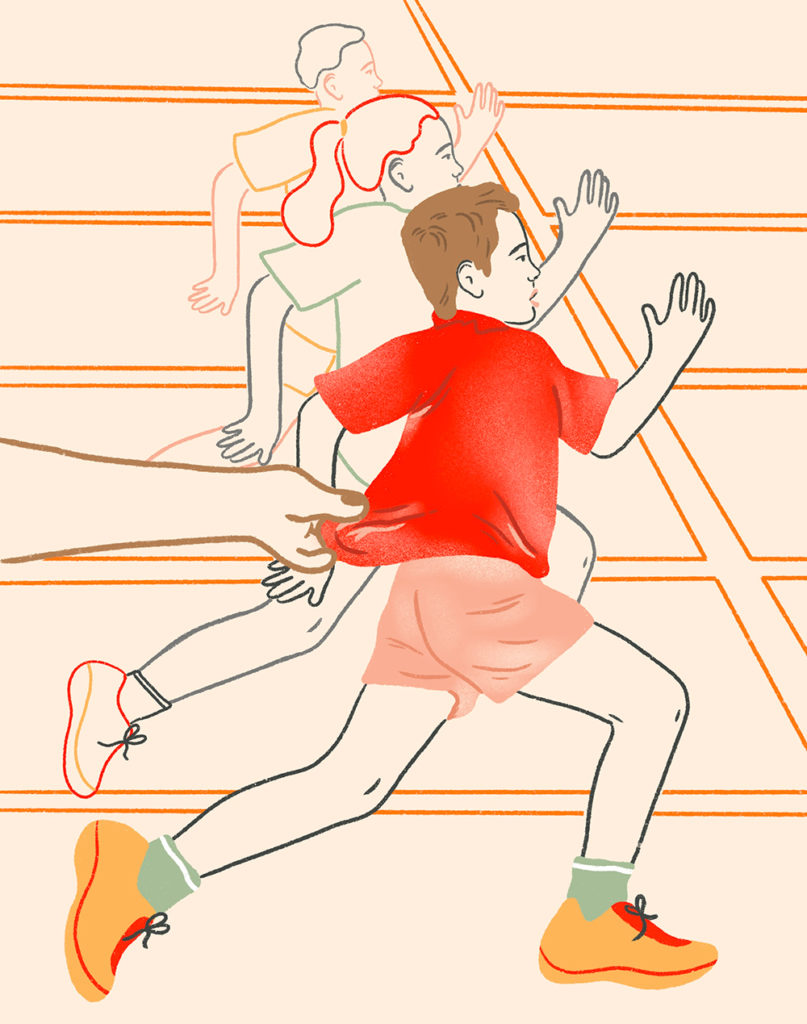THE QUESTION: Should parents engage in redshirting their eighth-grade student athletes — holding them back from graduation — purely for reasons of athletic competition?

URBACH: There is a trend emerging in America that is affecting our children, specifically our eighth-grade students. This practice is considered by some to be the best way to be successful in sports, while others view it as an abuse of youth athletics: to purposely hold back an eighth-grade student from graduating with his or her class in order to be physically, and perhaps mentally, more prepared for their high school athletic career, having benefitted from an extra year of growth and development.
This practice, unprecedented in this age group, raises many questions: Is it right to hold back a student who is legitimately ready for high school for the sole purpose of being bigger, stronger and faster in athletic competition? What message is being sent by parents to their children in doing so?
It is easy to say you want your child to have the best chance at being successful in his or her high school athletic endeavors. After years of preparation by a student for the next level, both academically and athletically, a parent just simply says no, we are not going to graduate our child this year. Instead, the child will repeat the eighth grade to work on athletic skills or advance physically. But success at what price?
There are two issues that must be addressed. First, this is a gamble with physical and psychological risks. Second, this places the priority on the athletic side of that child’s life. Will your son or daughter get bigger, stronger and faster? Will their skill set increase and make them a dominant player? Or might they get injured, or “burn out” from the stress associated with getting to the next level? And what of that proverbial next level?
Look at the numbers: They do not lie. According to NCAA.org, 2% of all graduating high school seniors get some form of higher education athletic aid. That’s a low percentage, considering that in 2019–20 approximately 3.7 million students were expected to graduate. Truth is, there is more money to be had for academic-oriented college aid, but few realize that fact.
It is easy to say you want your child to have the best chance at being successful in his or her high school athletic endeavors. … But success at what price?
Too many parents feel that redshirting at the secondary education level will lead to an athletic scholarship at a D1 college or university. In addition to the risk of injury and burn-out, let’s also hope that athletes are not mentally drained by the extra physical workload and the redundant workload in the classroom.
One must also consider the social ramifications of redshirting, as these student athletes will now be without the peers they went to school with, in some cases for more than eight years. Too often, we place an emphasis on athletics to the point where we forget what athletics is supposed to be about. It is supposed to be about working on a skill, working with a team and learning that through hard work you can achieve great things and create wonderful memories that will enhance your life for years afterward. Trust me, after being involved in high school athletics for more than 20 years and the past 10 as an athletic director, I can see that the one common attribute that all our most successful athletes have had is balance. Successful athletes know how to work hard, improve daily and enjoy the process or, as I like to call it, their unique athletic journey.
Let’s look, too, at the education issue involved. What message are parents sending to their children? “Academically, you are ready to graduate and join your peers at the high school of your choice, but we want you to be more physically developed and to work on your game.” Are we telling our children that this step makes sense even though it goes against the natural flow of education?
We are telling our children that their ability to play a sport matters much. But the question remains: Is putting your eggs in this athletically motivated basket best for your child? Parents, it is up to us to question the practice of redshirting at such a young age.
Dave Urbach ’97, M.A. ’08 has worked in high school athletics administration in the Los Angeles area, including as an athletics director, for more than 20 years. He lives in Granada Hills, California.
